Elijah David's Blog, page 19
June 15, 2016
Why You Need to Read Plenilune

When I first started reading Plenilune, I didn't really have any idea what it was about. I knew that I wanted to read it after finishing Mirriam's novel Monster (although I foolishly went on a trip without already having purchased Plenilune, so I had to delay it until I finished the book I started as soon as Monster was over, The Paper Magician). I knew that I enjoyed reading Jenny's blog posts and that she was good friends with Mirriam. Other than that (and the tantalizing precis on Amazon's item page), I was going in blind.
The Prose But from the opening chapters, I was sucked in. The prose in this book is rich and wonderful. Biblical and Shakespearean references do more than pepper the story -- they flavor it through and through. The characters leap to life like those in Dickens and Austen. In fact, I'd go so far as to say that if you took Austen's books, melded them a bit with Burrough's planetary fantasy, and added a dash of C. S. Lewis, you'd have approximately what Plenilune is. This is planetary fantasy at its finest: lush and wondrous. I found myself highlighting passages of description and dialogue because they were resonating with me as so many bits and pieces of Les Miserables had.
The Story The opening struck me as a bit slow coming off of a bunch of contemporary fiction and thrillers that moved at breakneck speed toward a hair-raising ending. Plenilune takes its time to set up the board and carry you through to checkmate. There might be those who find this slower pace a flaw, but it reminded me of Jonathan Strange and Mr Norrell in its careful advance, neither too slow nor too fast.
Jenny takes the story from a very mundane opening scene through fantasy, romance, and adventure to a conclusion that satisfies (almost) every desire and question I could have asked for. (There had to be a little room for the pantheon of novels coming in its wake.)
The Cast I'll confess to being peeved with Margaret's lack of curiosity in the early chapters, but by the time we meet the fox, I had accepted that this was simply not her nature. I couldn't fault her for being herself and not me.
Speaking of people's natures, Rupert and Dammerung are perfectly written and rounded characters, foils for each other, Margaret, and the reader. I couldn't have asked for a better pair of opponents whose battle to be caught up in. Rupert has a bit of the sympathetic villain about him, and something of the dangerous fiend as well. Dammerung is the dashing hero of story, but his power makes him dangerous just as Rupert is dangerous.
The women in Plenilune's Houses do not leave all to the men, but neither are they the stereotype of "strong female characters" who need no man and cannot exist in the presence of strong male characters (and the reverse is true as well). I long to write characters as dynamic, vivacious, and complex as those in this book.
In Short You should read this book if you're a fan of planetary fantasy like Burroughs' or Lewis', Gandalf, sagas, Austen, Susanna Clarke, foxes, cosmic battles, the Roman Empire, and/or vibrant characters who speak like Shakespearean characters without being unintelligible. If you don't find yourself in that section, I still suggest reading it. It has such powerful moments of mirth and sorrow that it can't help but resonate within the human heart.
Published on June 15, 2016 19:21
May 30, 2016
Albion Academy Snippets
Several of my blogging writer friends do what they call "snippet posts" which include short excerpts from whatever they happen to be working on at the moment. In my attempt to get myself more regular in my blogging (and my writing), I decided that sharing some short snatches of Albion Academy, the first in my Albion/Merlin series, would be a good thing to try. Without further ado, here they are, divided by narrator:
Mortimer, the Djinni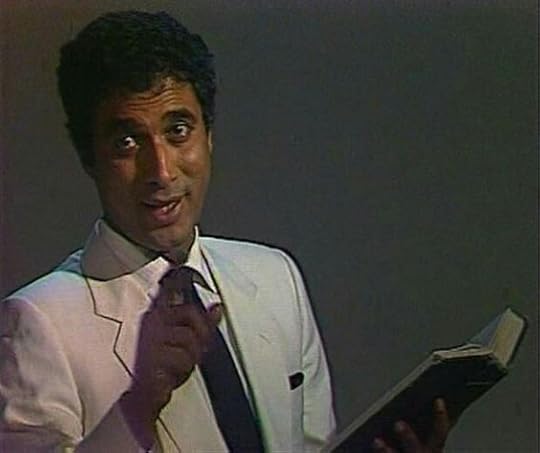 Normally he's a bit more ... bluish.
Normally he's a bit more ... bluish.
Wishes are curious things, capable of great wonder, yet so easily twisted by those who grant them.
"I wish to become human," I said to the Elders, the twelve oldest Djinn who had any desire to rule and weren't in the bottle. They sat, reclined, or floated around the perimeter of the small chamber, encircling me, each close enough to touch.
*****
"By the crotchety Elders," Brutus swore. Then he started laughing and I wondered if I'd made a mistake in calling out. I hadn't thought about doing it. I had wanted to prove Spork right. Brutus's attitude toward her and the other young Djinn was dishonorable to all the Djinn at Albion. I hadn't realized how much disdain Brutus had for others, not just humans and those who associated with them.
When Brutus recovered from his laughing fit, he said, "Morty, you got yourself trapped by a card-carrying human? I thought older Djinn were supposed to be better at eluding capture."
I decided to play a game with Brutus by mixing a little truth into my response. "When it suits us."
I smiled, envisioning the expression on his face as my words sank in.
"What do you mean 'when it suits you'?"
"I mean if I didn't want to be in here, I wouldn't be."
Brutus considered the implications of my words and said, "That's crazy talk."
"Perhaps," I said. "But I've learned madness can be a matter of perspective. Just look at Don Quixote."
"What about Don Quixote?"
"Well," I said, "he was a brave man who fought giants and knaves for the sake of his lady love."
Brutus scoffed. "That's not the story, Mortimer. Don Quixote was a mad old man with a stick."
"According to whom?"
"Cervantes," said Brutus.
"How do you know Cervantes wasn't mad himself and covering his tracks?" I asked.
******
There wouldn't have been a stronger reaction if I'd said Principal Reese was in the room playing the national anthem on the tuba while juggling flaming batons and riding a unicycle. Well, maybe there would have been a little more reaction to the unicycle.
Merlin, the wizard Well, not THAT Merlin.Five years before, a stranger with pale hair appeared on our street and struck up conversation with me. When I told Mom about the strange man who asked my name, whose voice echoed as though he were in a cave not on the street, we packed up and moved from Oregon to Alabama overnight. The first day in Ilium, I chose Harry as my Knower. The first night, the stranger appeared in our new backyard, this time with a different appearance. In the night, he stood taller than the fence, his once-pale hair now divided into four shades – red, gold, silver, and black – and writhing like a nest of snakes above his head. His eyes followed the same color scheme – above each pupil, the iris was golden and below, red. The whites were silver, the pupils deep as shadow, but his face was the same.
Well, not THAT Merlin.Five years before, a stranger with pale hair appeared on our street and struck up conversation with me. When I told Mom about the strange man who asked my name, whose voice echoed as though he were in a cave not on the street, we packed up and moved from Oregon to Alabama overnight. The first day in Ilium, I chose Harry as my Knower. The first night, the stranger appeared in our new backyard, this time with a different appearance. In the night, he stood taller than the fence, his once-pale hair now divided into four shades – red, gold, silver, and black – and writhing like a nest of snakes above his head. His eyes followed the same color scheme – above each pupil, the iris was golden and below, red. The whites were silver, the pupils deep as shadow, but his face was the same.
******
At last, I opened my eyes. The log floated three inches above my palm with no hint of the oscillating motion I'd expected. My success with the spell fascinated me to the point I didn't notice the neighbor boy staring over the fence until he spoke.
"Hi."
Not the most original way of introducing yourself to the new neighbors, but it got my attention. I let the log drop and turned to look at the boy on the fence. He fell to the ground. Otherwise, he probably would have said more.
*****
Mortimer wisely took us to the park behind the hospital, so we didn't just appear in Gabriel's room without any notice. As he guided me through the paths, I closed my eyes more often than not. Total darkness disoriented me less than darkness disturbed by random splashes of color.
"I'm going to need a stick at some point," I said as we entered the hospital.
"Or a dog," Mortimer suggested.
"You volunteering?" I asked.
"I haven't yet learned that shape, so no."
Bryn, the Valkyrie
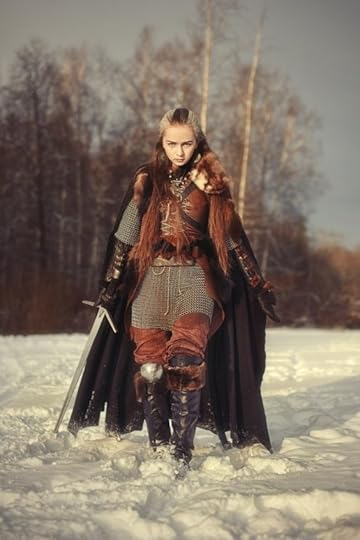 You wouldn't like her when she's angry.
You wouldn't like her when she's angry.
My brother, Thor, nudged me through the Knower's bond. Focus on your teacher, lillesøster, not your classmates. You didn't use a favor from the All-Father to criticize humans.
I twisted the gold ring on my right hand that signified the All-Father's favor. Thor was right, of course, but I didn't have to be happy about it. I'd have liked to see Thor try focusing on reversed curses with a classmate like Merlin Pendragon.
I'd be up to the task, Thor said.
*****
The dead boy from earlier that week waited inside the door, his skin covered once more in the raven's mark.
"Go away," I said. "Rest in peace already."
I drew my knife and brandished it at the dead boy. All-Father help me if a mortal came by just now. Was it a ghost or something worse that I faced?
Someone spoke just to my left, but the words made no sense. My eyes never left the dead boy. His eyes, filled with a strange curiosity tempered with hunger, locked with mine. He did not flinch when I brandished the knife at him. I prepared to strike, hoping that might at least drive off the spirit long enough for me to reach Asgard and ask Heimdall or Mother what could follow me even into Buckley. I had never heard of a Valkyrie being haunted, but Heimdall saw all that happened across the nine realms and Mother had begun the Valkyries. Surely one of them would know.
Before I could launch my attack, someone caught my arm.
"Bryn, stop! What are you doing?"
It was Merlin. Where had he come from and why was he holding me back? Didn't he realize there was something dangerous in the halls? I shrugged off his grasp and turned my attention back to the dead boy's ghost, but it was gone. In its place stood a tall black mortal dressed in dark clothes. I had seen him around the Buckley halls before. Merlin and Mortimer had mentioned his name, but it escaped me. He looked from my face to Merlin's and back, the hungry-curious gleam never leaving his eyes. Then he turned and walked away as though a Valkyrie brandishing a knife in his face was a customary event.
*****
Elaborately carved likenesses of the wolves Geri and Freki and the ravens Huginn and Muninn adorned the throne, each serving as a gateway to one of the All-Father's private retreats for those who knew the passwords, and only the eyes of Huginn were illuminated, which meant the All-Father had gone to his watchtower, where no one ever disturbed him except the Lady Frigga, and her only in times of war. I laid my hand on the carved Huginn's head and muttered the words that, even as they were taught, I was instructed never to use, except in dire emergency.
"Forgive me, Mother," I said as I passed through the gateway.
"It is not your mother's forgiveness you need," said the All-Father.
If you liked these snippets, let me know in the comments! The images in this post came from Pinterest; if you want to check out more Albion-related pictures, head to the Pinterest board for the series.
Mortimer, the Djinni
 Normally he's a bit more ... bluish.
Normally he's a bit more ... bluish.Wishes are curious things, capable of great wonder, yet so easily twisted by those who grant them.
"I wish to become human," I said to the Elders, the twelve oldest Djinn who had any desire to rule and weren't in the bottle. They sat, reclined, or floated around the perimeter of the small chamber, encircling me, each close enough to touch.
*****
"By the crotchety Elders," Brutus swore. Then he started laughing and I wondered if I'd made a mistake in calling out. I hadn't thought about doing it. I had wanted to prove Spork right. Brutus's attitude toward her and the other young Djinn was dishonorable to all the Djinn at Albion. I hadn't realized how much disdain Brutus had for others, not just humans and those who associated with them.
When Brutus recovered from his laughing fit, he said, "Morty, you got yourself trapped by a card-carrying human? I thought older Djinn were supposed to be better at eluding capture."
I decided to play a game with Brutus by mixing a little truth into my response. "When it suits us."
I smiled, envisioning the expression on his face as my words sank in.
"What do you mean 'when it suits you'?"
"I mean if I didn't want to be in here, I wouldn't be."
Brutus considered the implications of my words and said, "That's crazy talk."
"Perhaps," I said. "But I've learned madness can be a matter of perspective. Just look at Don Quixote."
"What about Don Quixote?"
"Well," I said, "he was a brave man who fought giants and knaves for the sake of his lady love."
Brutus scoffed. "That's not the story, Mortimer. Don Quixote was a mad old man with a stick."
"According to whom?"
"Cervantes," said Brutus.
"How do you know Cervantes wasn't mad himself and covering his tracks?" I asked.
******
There wouldn't have been a stronger reaction if I'd said Principal Reese was in the room playing the national anthem on the tuba while juggling flaming batons and riding a unicycle. Well, maybe there would have been a little more reaction to the unicycle.
Merlin, the wizard
 Well, not THAT Merlin.Five years before, a stranger with pale hair appeared on our street and struck up conversation with me. When I told Mom about the strange man who asked my name, whose voice echoed as though he were in a cave not on the street, we packed up and moved from Oregon to Alabama overnight. The first day in Ilium, I chose Harry as my Knower. The first night, the stranger appeared in our new backyard, this time with a different appearance. In the night, he stood taller than the fence, his once-pale hair now divided into four shades – red, gold, silver, and black – and writhing like a nest of snakes above his head. His eyes followed the same color scheme – above each pupil, the iris was golden and below, red. The whites were silver, the pupils deep as shadow, but his face was the same.
Well, not THAT Merlin.Five years before, a stranger with pale hair appeared on our street and struck up conversation with me. When I told Mom about the strange man who asked my name, whose voice echoed as though he were in a cave not on the street, we packed up and moved from Oregon to Alabama overnight. The first day in Ilium, I chose Harry as my Knower. The first night, the stranger appeared in our new backyard, this time with a different appearance. In the night, he stood taller than the fence, his once-pale hair now divided into four shades – red, gold, silver, and black – and writhing like a nest of snakes above his head. His eyes followed the same color scheme – above each pupil, the iris was golden and below, red. The whites were silver, the pupils deep as shadow, but his face was the same.******
At last, I opened my eyes. The log floated three inches above my palm with no hint of the oscillating motion I'd expected. My success with the spell fascinated me to the point I didn't notice the neighbor boy staring over the fence until he spoke.
"Hi."
Not the most original way of introducing yourself to the new neighbors, but it got my attention. I let the log drop and turned to look at the boy on the fence. He fell to the ground. Otherwise, he probably would have said more.
*****
Mortimer wisely took us to the park behind the hospital, so we didn't just appear in Gabriel's room without any notice. As he guided me through the paths, I closed my eyes more often than not. Total darkness disoriented me less than darkness disturbed by random splashes of color.
"I'm going to need a stick at some point," I said as we entered the hospital.
"Or a dog," Mortimer suggested.
"You volunteering?" I asked.
"I haven't yet learned that shape, so no."
Bryn, the Valkyrie
 You wouldn't like her when she's angry.
You wouldn't like her when she's angry.My brother, Thor, nudged me through the Knower's bond. Focus on your teacher, lillesøster, not your classmates. You didn't use a favor from the All-Father to criticize humans.
I twisted the gold ring on my right hand that signified the All-Father's favor. Thor was right, of course, but I didn't have to be happy about it. I'd have liked to see Thor try focusing on reversed curses with a classmate like Merlin Pendragon.
I'd be up to the task, Thor said.
*****
The dead boy from earlier that week waited inside the door, his skin covered once more in the raven's mark.
"Go away," I said. "Rest in peace already."
I drew my knife and brandished it at the dead boy. All-Father help me if a mortal came by just now. Was it a ghost or something worse that I faced?
Someone spoke just to my left, but the words made no sense. My eyes never left the dead boy. His eyes, filled with a strange curiosity tempered with hunger, locked with mine. He did not flinch when I brandished the knife at him. I prepared to strike, hoping that might at least drive off the spirit long enough for me to reach Asgard and ask Heimdall or Mother what could follow me even into Buckley. I had never heard of a Valkyrie being haunted, but Heimdall saw all that happened across the nine realms and Mother had begun the Valkyries. Surely one of them would know.
Before I could launch my attack, someone caught my arm.
"Bryn, stop! What are you doing?"
It was Merlin. Where had he come from and why was he holding me back? Didn't he realize there was something dangerous in the halls? I shrugged off his grasp and turned my attention back to the dead boy's ghost, but it was gone. In its place stood a tall black mortal dressed in dark clothes. I had seen him around the Buckley halls before. Merlin and Mortimer had mentioned his name, but it escaped me. He looked from my face to Merlin's and back, the hungry-curious gleam never leaving his eyes. Then he turned and walked away as though a Valkyrie brandishing a knife in his face was a customary event.
*****
Elaborately carved likenesses of the wolves Geri and Freki and the ravens Huginn and Muninn adorned the throne, each serving as a gateway to one of the All-Father's private retreats for those who knew the passwords, and only the eyes of Huginn were illuminated, which meant the All-Father had gone to his watchtower, where no one ever disturbed him except the Lady Frigga, and her only in times of war. I laid my hand on the carved Huginn's head and muttered the words that, even as they were taught, I was instructed never to use, except in dire emergency.
"Forgive me, Mother," I said as I passed through the gateway.
"It is not your mother's forgiveness you need," said the All-Father.
If you liked these snippets, let me know in the comments! The images in this post came from Pinterest; if you want to check out more Albion-related pictures, head to the Pinterest board for the series.
Published on May 30, 2016 06:00
May 24, 2016
Myth in Charles de Lint's Riddle of the Wren
I recently picked up Charles de Lint's Riddle of the Wren because I learned that it was part of Mirriam's inspiration for Paper Crowns (that is, she flipped through, saw the word Wysling, and ran with it). I wanted to see what he'd done with the concept, and when I saw that Cernunnos was also included in the glossary, I knew this book would be worth the read. (Mirriam also asked me to see how the two books compared.)

From the opening pages, this book feels quintessentially de Lint-ish. It has ordinary people who love stories and wild things and the edges of artistic society. There's lyricism in the prose and a sense of wonder and magic pervading the world. The opening chapters felt like something out of the Newford stories rather than something like Harp of the Grey Rose or Wolf Moon, both of which seem to be related to Riddle of the Wren in the sense of de Lint's working old myths and folktales into new works.
RotW works its way into Irish lore about the Tuathan and their enemies, along with those who fall into neither category -- the Grey Gods and their followers, the weren or moor folk. Cernunnos is the lord of this third category, and though (much to my disappointment) he never directly appears in the book, his influence is apparent from the first of Minda's dreams when his servant Jan Penalurick appears to ask for her help.
The contrast between the reality of the Tuathan, Daketh, and Grey Gods and the seeming fabrication of the monotheistic Koevah of Minda's world supports the rest of the book quite well. At first glance the religion of Koevah seems to be a caricature of Biblical monotheism. Koevah's name appears to be a play on Jehovah, and the description of his personality is basically the same reductionist view of God in the OT most people throw around when trying to make out that God hates people. Minda compares her impression of Koevah to the "little gods" found in the illustrations of a book and finds she prefers the little gods. I found myself wondering why she would -- not in the sense of why prefer fauns to a judgmental curmudgeon in the sky, but why prefer something you could refer to as little? The idea of your god or gods fitting in your pocket to be pulled out when you want them and ignored when you don't is a dangerous attitude in any religion, not just Christianity. This isn't Minda's only moment of possibly unsound theology. She also ignores (or is ignorant of) the danger inherent in being visited in her dreams by an aspect of the Horned Lord Cernunnos. It isn't till Wysling Grimbold -- who I lovingly refer to as Gandalf in a Trufflehunter suit -- mentions it that anyone in the story recognizes the potential danger inherent in Minda's dream.
 Seriously, I waited the whole book for this guy to show up and nada.
Seriously, I waited the whole book for this guy to show up and nada.
Riddle of the Wren is a passing fair novel. It doesn't shy away from the fact that Minda puts the group in danger several times and admits to the mistakes of the various characters so that none of them appears to be Mary Sue-ish. I think my main disappointments come from what I wanted it to be compared to what it is. I wanted there to be a redemption of myth in this book because I came off of all the discussions about that when I picked this up. I know better than to expect this from de Lint, who tends toward the pagan in his books, but the desire to see a myth redeemed is still there. I wanted there to be a more direct appearance by Cernunnos and the other deities described in the book because I am a fan of the "mythology is true" and "God/gods are real" tropes in fiction. I like books that do this because I see in them a reflection of Christ entering the world and the Story His Father is telling. And RotW doesn't do that in the grand way I prefer. So I'm slightly disappointed in it. The bright side is I now have more material fodder for my books because (in true Inklings fashion) I've seen something that disappoints me and now wish to write it the way it ought to be told.
While the story hits some predictable plot points (the power is within you!), the story is different and intriguing because of its use of multiple worlds, Irish myth, and a diverse cast of characters who, though painted at times in broad strokes, leap off the page whenever they can. If you haven't read any de Lint, this is a book to cut your teeth on. If you've read him before, you'll find this book is at once everything you've come to expect from him and yet not quite all you hoped it would be. I recommend reading it if you're a fan of myths, Charles de Lint, Celtic things, and world-hopping fantasy. Also talking badgers.
*All images found via Pinterest.

From the opening pages, this book feels quintessentially de Lint-ish. It has ordinary people who love stories and wild things and the edges of artistic society. There's lyricism in the prose and a sense of wonder and magic pervading the world. The opening chapters felt like something out of the Newford stories rather than something like Harp of the Grey Rose or Wolf Moon, both of which seem to be related to Riddle of the Wren in the sense of de Lint's working old myths and folktales into new works.
RotW works its way into Irish lore about the Tuathan and their enemies, along with those who fall into neither category -- the Grey Gods and their followers, the weren or moor folk. Cernunnos is the lord of this third category, and though (much to my disappointment) he never directly appears in the book, his influence is apparent from the first of Minda's dreams when his servant Jan Penalurick appears to ask for her help.
The contrast between the reality of the Tuathan, Daketh, and Grey Gods and the seeming fabrication of the monotheistic Koevah of Minda's world supports the rest of the book quite well. At first glance the religion of Koevah seems to be a caricature of Biblical monotheism. Koevah's name appears to be a play on Jehovah, and the description of his personality is basically the same reductionist view of God in the OT most people throw around when trying to make out that God hates people. Minda compares her impression of Koevah to the "little gods" found in the illustrations of a book and finds she prefers the little gods. I found myself wondering why she would -- not in the sense of why prefer fauns to a judgmental curmudgeon in the sky, but why prefer something you could refer to as little? The idea of your god or gods fitting in your pocket to be pulled out when you want them and ignored when you don't is a dangerous attitude in any religion, not just Christianity. This isn't Minda's only moment of possibly unsound theology. She also ignores (or is ignorant of) the danger inherent in being visited in her dreams by an aspect of the Horned Lord Cernunnos. It isn't till Wysling Grimbold -- who I lovingly refer to as Gandalf in a Trufflehunter suit -- mentions it that anyone in the story recognizes the potential danger inherent in Minda's dream.
 Seriously, I waited the whole book for this guy to show up and nada.
Seriously, I waited the whole book for this guy to show up and nada.Riddle of the Wren is a passing fair novel. It doesn't shy away from the fact that Minda puts the group in danger several times and admits to the mistakes of the various characters so that none of them appears to be Mary Sue-ish. I think my main disappointments come from what I wanted it to be compared to what it is. I wanted there to be a redemption of myth in this book because I came off of all the discussions about that when I picked this up. I know better than to expect this from de Lint, who tends toward the pagan in his books, but the desire to see a myth redeemed is still there. I wanted there to be a more direct appearance by Cernunnos and the other deities described in the book because I am a fan of the "mythology is true" and "God/gods are real" tropes in fiction. I like books that do this because I see in them a reflection of Christ entering the world and the Story His Father is telling. And RotW doesn't do that in the grand way I prefer. So I'm slightly disappointed in it. The bright side is I now have more material fodder for my books because (in true Inklings fashion) I've seen something that disappoints me and now wish to write it the way it ought to be told.
While the story hits some predictable plot points (the power is within you!), the story is different and intriguing because of its use of multiple worlds, Irish myth, and a diverse cast of characters who, though painted at times in broad strokes, leap off the page whenever they can. If you haven't read any de Lint, this is a book to cut your teeth on. If you've read him before, you'll find this book is at once everything you've come to expect from him and yet not quite all you hoped it would be. I recommend reading it if you're a fan of myths, Charles de Lint, Celtic things, and world-hopping fantasy. Also talking badgers.
*All images found via Pinterest.
Published on May 24, 2016 08:12
May 17, 2016
Top 10 Tuesday: Non-Science Fiction and Fantasy Books
In an attempt to demonstrate that I do actually (on occasion) read things that aren't science fiction and/or fantasy of some kind, today's Top 10 is a list of books outside those genres. As always, these are in no particular order.
Planet Narnia by Michael Ward
Planet Narnia is an analysis of the Narnia series, along with portions of C. S. Lewis' other works like his poetry and the Cosmic/Ransom Trilogy, exploring Lewis' fascination with medieval cosmology. Ward theorizes that Lewis' construction of the Narnia books builds each story around one of the seven heavens of the middle ages; in the medieval understanding of the unvierse, each heaven is the sphere of a planet (Venus, Mars, Mercury, the Sun, the Moon, Jupiter, and Saturn). While I doubted the validity of Ward's thesis before I read the book, he quickly convinced me this theory had merit. This book not only gave me a fresh understanding of some of my favorite books, it also stirred a desire to read more of Lewis' works outside his fiction.
How Harry Cast His Spell by John Granger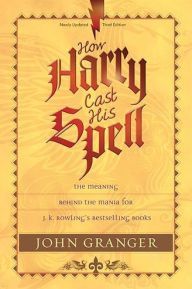
I've read two versions of this book: this full version that covers the entire Harry Potter series, and an earlier version that only covered the first four or five books. Granger's work does something similar for Harry Potter to what Planet Narnia does for Narnia, only Granger's literary structure of choice is alchemy. He introduces the reader to the basics of alchemical imagery and demonstrates Harry Potter's use of that symbol system to deepen the meaning of the plot. He also ties the use of alchemical imagery to Rowling's Christian faith (something not often spoken of when the Potter books are discussed). If I hadn't read Granger's book and discovered the deep and meaningful layers of imagery that can lurk in a book series, I probably wouldn't have believed Ward's theory as readily.
Orthodoxy by G. K. Chesterton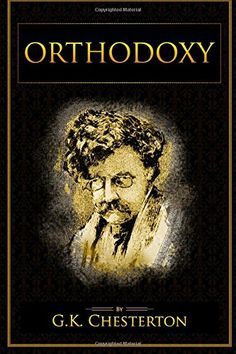
Chesterton has a way with words and analogies that I've only ever seen repeated in C. S. Lewis' nonfiction. The one passage in this book that has stuck with me most since I read it last year is this:
The Four Loves by C. S. Lewis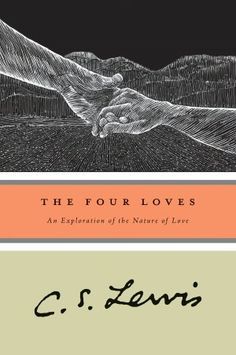
I had the pleasure of first reading this book by listening to the audio version which is a recording of Lewis' original broadcast. It's a wonderful thing to finally hear one of my favorite authors' voices and be able to now imagine his voice when reading his other works. This book also helped me to face the deficiencies in my own loves -- familial, friendly, romantic, and godly. It's a book I can return to many times and still be refreshed and challenged by.
The Westing Game by Ellen Raskin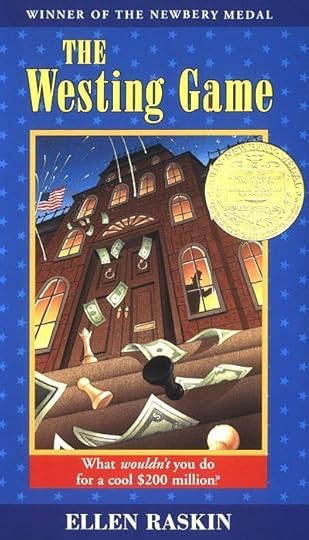
This is one of the few non-SFF books I have reread multiple times because it's just such a fun ride every time. Even knowing how it ends, I get caught up in the relationships and struggles of the characters as they navigate the Westing Game. This is a book I can't wait to read with my future kids when they're old enough.
The Patrick Bowers series by Steven James
This series follows geographic criminologist Patrick Bowers as he assists the FBI in solving crimes by helping them determine where serial criminals's home bases are. Each book delves further into Patrick's faith and struggle to raise his step-daughter in the wake of his wife's death, and the characters always leap off the page. Once I start reading one of these books, I know I'll be lost to the world for a few days because I won't want to stop reading.
To Kill a Mockingbird by Harper Lee
Despite the less-than-stellar "sequel" released last year and its potential damage to the characters I loved so well, To Kill a Mockingbird still ranks as one of my favorite books ever. It presents much of the South that I knew and even more of the South my parents and grandparents remember. It gave me heroes like Atticus, Scout, and Jem. It inspired a character in one of my books. Its themes of love and friendship and honor in the face of peer pressure will forever resonate with me.
The Secret Garden by Frances Hodgson Burnett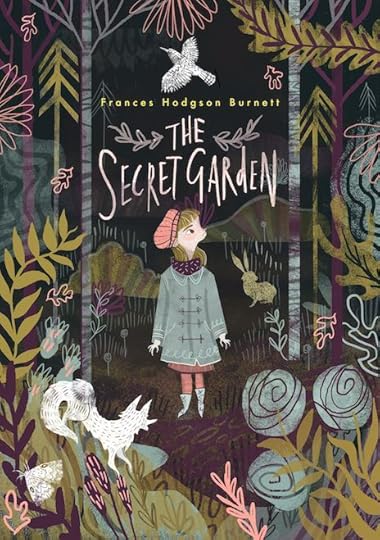
I first loved the story of The Secret Garden when I watched the Hallmark film as a child. I would watch this one frequently, and the magic of the phrase "if there's a key, there must be a door" fired my imagination more than any other in that time. The earnestness of Mary and the balancing nature of her friendships with Dickon, Colin, and the rest made me long for secrets and revealings and places which were reflections of oneself.
The Complete English Poems of George Herbert
I first discovered George Herbert's poems in the literature survey classes I took pursuing my undergraduate degree. Herbert was something new to me: a man who wrote poetry at once both simple and deep, religious yet not maudlin, skillful and entertaining. He created stories and psalms within his words. He knew how to thrust the knife of conviction into his reader's heart and then spread the balm of grace over the wound. I thank God that his poems were not burned after his death as he wished but preserved for us to enjoy and be edified by for years to come.
Rosencrantz and Guildenstern are Dead by Tom Stoppard
Let me start by saying that Hamlet is not one of my favorite of Shakespeare's plays. It isn't as thrilling as Othello or Macbeth nor as readily heartfelt as King Lear, and it certainly has nothing like what A Midsummer Night's Dream and The Tempest offer. But David Tennant's production of the play gave me a new appreciation for it, and when I came to Stoppard's deconstruction of the play I knew I was in for something different. I didn't quite love the play when I read it. It was good, it was clever, but I didn't quite have the full picture of it. It's this way with most plays for me; they're written to be performed, and I understand them best when they are. Fortunately, I was able to watch the film version, which Stoppard also wrote, shortly afterward. Things clicked into place. The play was phenomenal. I wanted to reread it again right away (it doesn't take long).
How about you? What are some of your favorite non-SFF books? Let me know in the comments!
If there's a Top 10 you'd like to see, suggest it to me; it might end up as a post!
I'm now in Goodreads' Author Program! Check me out, follow me, and feel free to ask questions.
Planet Narnia by Michael Ward

Planet Narnia is an analysis of the Narnia series, along with portions of C. S. Lewis' other works like his poetry and the Cosmic/Ransom Trilogy, exploring Lewis' fascination with medieval cosmology. Ward theorizes that Lewis' construction of the Narnia books builds each story around one of the seven heavens of the middle ages; in the medieval understanding of the unvierse, each heaven is the sphere of a planet (Venus, Mars, Mercury, the Sun, the Moon, Jupiter, and Saturn). While I doubted the validity of Ward's thesis before I read the book, he quickly convinced me this theory had merit. This book not only gave me a fresh understanding of some of my favorite books, it also stirred a desire to read more of Lewis' works outside his fiction.
How Harry Cast His Spell by John Granger

I've read two versions of this book: this full version that covers the entire Harry Potter series, and an earlier version that only covered the first four or five books. Granger's work does something similar for Harry Potter to what Planet Narnia does for Narnia, only Granger's literary structure of choice is alchemy. He introduces the reader to the basics of alchemical imagery and demonstrates Harry Potter's use of that symbol system to deepen the meaning of the plot. He also ties the use of alchemical imagery to Rowling's Christian faith (something not often spoken of when the Potter books are discussed). If I hadn't read Granger's book and discovered the deep and meaningful layers of imagery that can lurk in a book series, I probably wouldn't have believed Ward's theory as readily.
Orthodoxy by G. K. Chesterton

Chesterton has a way with words and analogies that I've only ever seen repeated in C. S. Lewis' nonfiction. The one passage in this book that has stuck with me most since I read it last year is this:
[G]rown-up people are not strong enough to exult in monotony. But perhaps God is strong enough to exult in monotony. It is possible that God says every morning, “Do it again” to the sun; and every evening, “Do it again” to the moon. It may not be automatic necessity that makes all daisies alike; it may be that God makes every daisy separately, but has never got tired of making them. It may be that He has the eternal appetite of infancy; for we have sinned and grown old, and our Father is younger than we.The image of God eternally pleased with His creation to the point that He never tires of it doing precisely what it was intended to do captures my imagination and rekindles my wonder in the beauty of the world.
The Four Loves by C. S. Lewis

I had the pleasure of first reading this book by listening to the audio version which is a recording of Lewis' original broadcast. It's a wonderful thing to finally hear one of my favorite authors' voices and be able to now imagine his voice when reading his other works. This book also helped me to face the deficiencies in my own loves -- familial, friendly, romantic, and godly. It's a book I can return to many times and still be refreshed and challenged by.
The Westing Game by Ellen Raskin

This is one of the few non-SFF books I have reread multiple times because it's just such a fun ride every time. Even knowing how it ends, I get caught up in the relationships and struggles of the characters as they navigate the Westing Game. This is a book I can't wait to read with my future kids when they're old enough.
The Patrick Bowers series by Steven James

This series follows geographic criminologist Patrick Bowers as he assists the FBI in solving crimes by helping them determine where serial criminals's home bases are. Each book delves further into Patrick's faith and struggle to raise his step-daughter in the wake of his wife's death, and the characters always leap off the page. Once I start reading one of these books, I know I'll be lost to the world for a few days because I won't want to stop reading.
To Kill a Mockingbird by Harper Lee

Despite the less-than-stellar "sequel" released last year and its potential damage to the characters I loved so well, To Kill a Mockingbird still ranks as one of my favorite books ever. It presents much of the South that I knew and even more of the South my parents and grandparents remember. It gave me heroes like Atticus, Scout, and Jem. It inspired a character in one of my books. Its themes of love and friendship and honor in the face of peer pressure will forever resonate with me.
The Secret Garden by Frances Hodgson Burnett

I first loved the story of The Secret Garden when I watched the Hallmark film as a child. I would watch this one frequently, and the magic of the phrase "if there's a key, there must be a door" fired my imagination more than any other in that time. The earnestness of Mary and the balancing nature of her friendships with Dickon, Colin, and the rest made me long for secrets and revealings and places which were reflections of oneself.
The Complete English Poems of George Herbert

I first discovered George Herbert's poems in the literature survey classes I took pursuing my undergraduate degree. Herbert was something new to me: a man who wrote poetry at once both simple and deep, religious yet not maudlin, skillful and entertaining. He created stories and psalms within his words. He knew how to thrust the knife of conviction into his reader's heart and then spread the balm of grace over the wound. I thank God that his poems were not burned after his death as he wished but preserved for us to enjoy and be edified by for years to come.
Rosencrantz and Guildenstern are Dead by Tom Stoppard

Let me start by saying that Hamlet is not one of my favorite of Shakespeare's plays. It isn't as thrilling as Othello or Macbeth nor as readily heartfelt as King Lear, and it certainly has nothing like what A Midsummer Night's Dream and The Tempest offer. But David Tennant's production of the play gave me a new appreciation for it, and when I came to Stoppard's deconstruction of the play I knew I was in for something different. I didn't quite love the play when I read it. It was good, it was clever, but I didn't quite have the full picture of it. It's this way with most plays for me; they're written to be performed, and I understand them best when they are. Fortunately, I was able to watch the film version, which Stoppard also wrote, shortly afterward. Things clicked into place. The play was phenomenal. I wanted to reread it again right away (it doesn't take long).
How about you? What are some of your favorite non-SFF books? Let me know in the comments!
If there's a Top 10 you'd like to see, suggest it to me; it might end up as a post!
I'm now in Goodreads' Author Program! Check me out, follow me, and feel free to ask questions.
Published on May 17, 2016 05:00
May 12, 2016
ThrowBook Thursday: In Which We Begin A New Thing
Welcome to the first ever ThrowBook Thursday*! This is an idea I've been toying with for a little while. Every so often (I can't say I'll do this once a week right now, but maybe once or twice a month), I'll pull out a book that I've read before that's left some long-term echoes in my heart and mind and (re-)introduce you to it and the reasons it has stayed with me.
For this inaugural edition, I'm dusting off...
The Horse and His Boy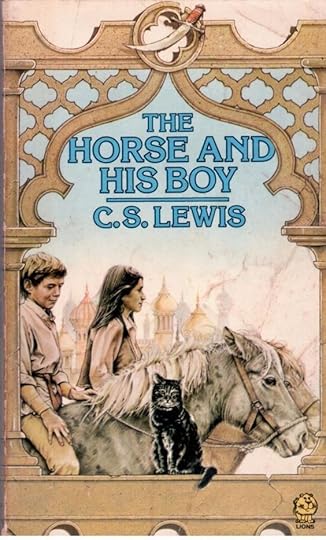 This is my favorite HHB cover.Okay, it might be cheating a bit to pick my favorite Narnian Chronicle, but as I was thinking about what book I might use as the first in this series of posts, this book sprang to mind almost immediately.
This is my favorite HHB cover.Okay, it might be cheating a bit to pick my favorite Narnian Chronicle, but as I was thinking about what book I might use as the first in this series of posts, this book sprang to mind almost immediately.
For those of you unfamiliar with this book, it is different from all the rest of the Narnian book in that it does not follow the adventures of any of the Friends of Narnia (the Pevensies, their cousin Eustace and his friend Jill, and the Professor and his friend Polly). Instead, it begins with a young boy called Shasta in the land of Calormen. Shasta discovers that the horse of a passing soldier is actually a Talking Horse from Narnia, and the two decide to run away to Narnia rather than endure continued (in the case of the horse Bree) or future (in Shasta's case) slavery to the Calormen soldier. On the way, they meet a young Tarkheena called Aravis and her horse, Hwin, who is also a Talking Horse from Narnia. The four of them continue on their way and have various encounters with nobility from Narnia, Archenland, and Calormen, and the culmination of each of their character arcs is perfectly suited to them.
Shasta's encounter with Aslan is one of my favorite passages in the series, and a tremendous image of God's sovereignty and providence in the lives of His children (not to mention the universe at large). I remember being both shocked and glad that we had been given little glimpses of Aslan throughout the book when he seemed to be absent for so much of it. That revelation and the discussion in which it happens have invaded my imagination for years and I'm forever grateful to C.S. Lewis for writing it.
What book from your past has stuck with you through the years? Let me know in the comments!
If you haven't subscribed to Inexhaustible Inspiration yet, you can do so by clicking the little icon on the right side of the page. You'll be prompted to enter your email address, and you will be sent a confirmation email.
*I looked around to see if anyone else had done this, but didn't find anything quite like what I have in mind, despite the somewhat obvious nature of the pun. If you have seen anyone else do this sort of thing, please let me know so I can see how it's done.
For this inaugural edition, I'm dusting off...
The Horse and His Boy
 This is my favorite HHB cover.Okay, it might be cheating a bit to pick my favorite Narnian Chronicle, but as I was thinking about what book I might use as the first in this series of posts, this book sprang to mind almost immediately.
This is my favorite HHB cover.Okay, it might be cheating a bit to pick my favorite Narnian Chronicle, but as I was thinking about what book I might use as the first in this series of posts, this book sprang to mind almost immediately.For those of you unfamiliar with this book, it is different from all the rest of the Narnian book in that it does not follow the adventures of any of the Friends of Narnia (the Pevensies, their cousin Eustace and his friend Jill, and the Professor and his friend Polly). Instead, it begins with a young boy called Shasta in the land of Calormen. Shasta discovers that the horse of a passing soldier is actually a Talking Horse from Narnia, and the two decide to run away to Narnia rather than endure continued (in the case of the horse Bree) or future (in Shasta's case) slavery to the Calormen soldier. On the way, they meet a young Tarkheena called Aravis and her horse, Hwin, who is also a Talking Horse from Narnia. The four of them continue on their way and have various encounters with nobility from Narnia, Archenland, and Calormen, and the culmination of each of their character arcs is perfectly suited to them.
Shasta's encounter with Aslan is one of my favorite passages in the series, and a tremendous image of God's sovereignty and providence in the lives of His children (not to mention the universe at large). I remember being both shocked and glad that we had been given little glimpses of Aslan throughout the book when he seemed to be absent for so much of it. That revelation and the discussion in which it happens have invaded my imagination for years and I'm forever grateful to C.S. Lewis for writing it.
What book from your past has stuck with you through the years? Let me know in the comments!
If you haven't subscribed to Inexhaustible Inspiration yet, you can do so by clicking the little icon on the right side of the page. You'll be prompted to enter your email address, and you will be sent a confirmation email.
*I looked around to see if anyone else had done this, but didn't find anything quite like what I have in mind, despite the somewhat obvious nature of the pun. If you have seen anyone else do this sort of thing, please let me know so I can see how it's done.
Published on May 12, 2016 06:00
May 11, 2016
Magic and Christian Fiction Guest Post at The Crossover Alliance.
Hard on the heels of yesterday's discussion with Mirriam Neal, I have an article on The Crossover Alliance's blog discussing magic in Christian fiction.

The Crossover Alliance is a publisher specializing in edgy Christian fiction. My short story, "The Debt-Keeper" was published in their second short story anthology.
Check out the article here.

The Crossover Alliance is a publisher specializing in edgy Christian fiction. My short story, "The Debt-Keeper" was published in their second short story anthology.
Check out the article here.
Published on May 11, 2016 07:21
May 10, 2016
Paper Crowns and Redeeming Myths: An Interview-ish Thing with Mirriam Neal
Today it is my very great pleasure to interview/host Mirriam Neal as part of the blog tour for her newly published novel, Paper Crowns. I had the privilege of beta reading this book last summer and I can't wait to read the final version. Below you can see the beautiful cover and the synopsis of the book.
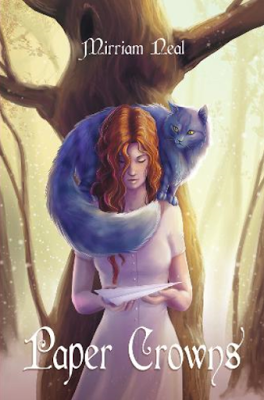
Ginger has lived in seclusion, with only her aunt Malgarel and her blue cat, Halcyon, to keep her company. Her sheltered, idyllic life is turned upside-down when her home is attacked by messengers from the world of fae. Accompanied by Halcyon (who may or may not be more than just a cat), an irascible wysling named Azrael, and a loyal fire elemental named Salazar, Ginger ventures into the world of fae to bring a ruthless Queen to justice.
And without further ado, the interview:
ED: Ever since I first read Paper Crowns, I've only been able to think of it as a fun romp through Faerie. What drew you to writing a story about Faerie in the first place? What was your favorite aspect of Faerie to explore?
MN: Honestly Paper Crowns feels like one very small idea of Faerie, and one that I didn't explore nearly as much as I wanted to. Faerie is a world open to endless interpretations and explorations -- and that's my favorite aspect, never knowing what you'll run into. I had no idea. It's why I wanted to write about it in the first place -- I hadn't done it before.
ED: One of the things that (pleasantly) surprised me about Paper Crowns was the inclusion of Cernunnos, the Horned God of Celtic myth. I really enjoyed your use of that character and the way you dealt with him. Could you talk about how he came to be a part of the story and what about him fascinated you (both in myth and in your world)?
MN: I've always been fascinated by the aesthetic of Cernunnos, and the different ways his appearance is interpreted. He always seemed more mysterious and majestic than, say, mythological Greek figures like, say, Bacchus (whom I wouldn't trust with a paper clip). Cernunnos wanted to be from Faerie, so I let him, and then I had to decide what to do with him! Or rather, just let him do what he wanted to do. You don't boss Cernunnos around.
ED: Cernunnos' presence in the story reminds me a lot of the nymphs, river gods, dryads, and so forth that C.S. Lewis uses in the Narnia books. He especially makes me think of the river god and Bacchus in Prince Caspian, since they acknowledge subservience to a higher power, and of Tumnus in The Lion, the Witch, and the Wardrobe. Tumnus' story follows a typical Greek faun's -- he lures a young girl away, lulls her to sleep with music, and intends to kidnap her (or worse, in the myths). Yet Lewis redeems Tumnus by making him repentant of his actions and in some ways an unwilling victim. You do something similar with Cernunnos, taking someone with wild and dark associations in pagan beliefs and making him what I think we can call a truer version of himself. Was that always your intention with Cernunnos? Is that something you see yourself doing much of in your books? How has Lewis' tendency to redeem myths influenced your own work?
MN: Lewis once said that when paganism echoes Christianity, we ought to say, "So much the better for paganism, not so much the worse for Christianity." He could not have phrased it better. All my life I noticed how afraid the Christianity I knew was -- of mythology, of myths, of false gods, and this all seemed terribly wrong. Why should we be afraid of them? Are they a threat? Are they stronger? No -- and so I believe, as Christians, we have a responsibility to redeem 'paganism,' as it were. Christianity is a redemptive faith. We take over tunes of old songs and re-construct them for Christ, to name an example. Missing the value and vibrancy of old myths seems like a tragic waste. Finding the 'truer self' of things, as you said -- that's beautiful. I think that's what we as Christians are meant to do.
ED: Your books tend to tackle questions of faith and morality. This is especially evident in Monster, which tackles issues related to biological testing and the definition of life. How does Paper Crowns do the same? How does it differ?
MN: Paper Crowns differs heavily from my other novels because I didn't set out to tackle questions. Paper Crowns just wanted to be a faerie tale, and so I let it -- although I wanted it to be a faithful faerie tale, something everyone could read and enjoy. Usually my books aren't kid-friendly, so I wanted to break my modus operandi and write a kid-friendly faerie tale.
ED: You mentioned in your interview with Arielle that you've written one sequel to Paper Crowns (consider this a not-so-subtle nudge to get it ready for beta reading) and have several more in the works. Will Cernunnos come back? (I certainly hope he does.)
MN: I would very much love for Cernunnos to come back. His part was small and he has, I think,

Mirriam Neal is a twenty-two-year-old Northwestern hipster living in Atlanta. She writes hard-to-describe books in hard-to-describe genres, and illustrates things whenever she finds the time. She aspires to live as faithfully and creatively as she can and she hopes you do, too.
If you want to read more about Mirriam's work or see what she's up to, check out her blog at https://mirriamneal.com/. You can also send questions and comments to her at the-shieldmaiden@hotmail.com.
For other blogs hosting Mirriam and Paper Crowns this month, check out the master list and schedule at The Splendor Falls on Castle Walls.
Check out Paper Crowns at Goodreads and Mirror Publishing.
Order your own copy of Paper Crowns at Amazon or Barnes and Noble.You can also find Mirriam's first novel, Monster, at Amazon.

Ginger has lived in seclusion, with only her aunt Malgarel and her blue cat, Halcyon, to keep her company. Her sheltered, idyllic life is turned upside-down when her home is attacked by messengers from the world of fae. Accompanied by Halcyon (who may or may not be more than just a cat), an irascible wysling named Azrael, and a loyal fire elemental named Salazar, Ginger ventures into the world of fae to bring a ruthless Queen to justice.
And without further ado, the interview:
ED: Ever since I first read Paper Crowns, I've only been able to think of it as a fun romp through Faerie. What drew you to writing a story about Faerie in the first place? What was your favorite aspect of Faerie to explore?
MN: Honestly Paper Crowns feels like one very small idea of Faerie, and one that I didn't explore nearly as much as I wanted to. Faerie is a world open to endless interpretations and explorations -- and that's my favorite aspect, never knowing what you'll run into. I had no idea. It's why I wanted to write about it in the first place -- I hadn't done it before.
ED: One of the things that (pleasantly) surprised me about Paper Crowns was the inclusion of Cernunnos, the Horned God of Celtic myth. I really enjoyed your use of that character and the way you dealt with him. Could you talk about how he came to be a part of the story and what about him fascinated you (both in myth and in your world)?
MN: I've always been fascinated by the aesthetic of Cernunnos, and the different ways his appearance is interpreted. He always seemed more mysterious and majestic than, say, mythological Greek figures like, say, Bacchus (whom I wouldn't trust with a paper clip). Cernunnos wanted to be from Faerie, so I let him, and then I had to decide what to do with him! Or rather, just let him do what he wanted to do. You don't boss Cernunnos around.
ED: Cernunnos' presence in the story reminds me a lot of the nymphs, river gods, dryads, and so forth that C.S. Lewis uses in the Narnia books. He especially makes me think of the river god and Bacchus in Prince Caspian, since they acknowledge subservience to a higher power, and of Tumnus in The Lion, the Witch, and the Wardrobe. Tumnus' story follows a typical Greek faun's -- he lures a young girl away, lulls her to sleep with music, and intends to kidnap her (or worse, in the myths). Yet Lewis redeems Tumnus by making him repentant of his actions and in some ways an unwilling victim. You do something similar with Cernunnos, taking someone with wild and dark associations in pagan beliefs and making him what I think we can call a truer version of himself. Was that always your intention with Cernunnos? Is that something you see yourself doing much of in your books? How has Lewis' tendency to redeem myths influenced your own work?
MN: Lewis once said that when paganism echoes Christianity, we ought to say, "So much the better for paganism, not so much the worse for Christianity." He could not have phrased it better. All my life I noticed how afraid the Christianity I knew was -- of mythology, of myths, of false gods, and this all seemed terribly wrong. Why should we be afraid of them? Are they a threat? Are they stronger? No -- and so I believe, as Christians, we have a responsibility to redeem 'paganism,' as it were. Christianity is a redemptive faith. We take over tunes of old songs and re-construct them for Christ, to name an example. Missing the value and vibrancy of old myths seems like a tragic waste. Finding the 'truer self' of things, as you said -- that's beautiful. I think that's what we as Christians are meant to do.
ED: Your books tend to tackle questions of faith and morality. This is especially evident in Monster, which tackles issues related to biological testing and the definition of life. How does Paper Crowns do the same? How does it differ?
MN: Paper Crowns differs heavily from my other novels because I didn't set out to tackle questions. Paper Crowns just wanted to be a faerie tale, and so I let it -- although I wanted it to be a faithful faerie tale, something everyone could read and enjoy. Usually my books aren't kid-friendly, so I wanted to break my modus operandi and write a kid-friendly faerie tale.
ED: You mentioned in your interview with Arielle that you've written one sequel to Paper Crowns (consider this a not-so-subtle nudge to get it ready for beta reading) and have several more in the works. Will Cernunnos come back? (I certainly hope he does.)
MN: I would very much love for Cernunnos to come back. His part was small and he has, I think,

Mirriam Neal is a twenty-two-year-old Northwestern hipster living in Atlanta. She writes hard-to-describe books in hard-to-describe genres, and illustrates things whenever she finds the time. She aspires to live as faithfully and creatively as she can and she hopes you do, too.
If you want to read more about Mirriam's work or see what she's up to, check out her blog at https://mirriamneal.com/. You can also send questions and comments to her at the-shieldmaiden@hotmail.com.
For other blogs hosting Mirriam and Paper Crowns this month, check out the master list and schedule at The Splendor Falls on Castle Walls.
Check out Paper Crowns at Goodreads and Mirror Publishing.
Order your own copy of Paper Crowns at Amazon or Barnes and Noble.You can also find Mirriam's first novel, Monster, at Amazon.
Published on May 10, 2016 04:51
May 9, 2016
Race, Love, and Luxorite: The Morality of Steeplejack

A.J. Hartley's new novel Steeplejack seems at first to be an issue book about race relations touting itself as a mystery. Within the first five chapters, the protagonist -- a Lani steeplejack named Anglet Sutonga -- faces misogyny, assault, racial stereotyping, poverty, and more from police, her community, her boss, and even her own family.
I almost put the book down.
It wasn't that these issues were difficult to read about or that the book portrayed them unrealistically; it was the fact that in such a short span the main character seemed to have hit all the talking points available for a poor, teenage woman of color protagonist. It felt like the author was trying too hard to cover "the issues" and not enough to tell the story.
But then the mystery aspect of the story kicked into full gear, and the two aspects of the book began to balance each other out, eventually intertwining in a very skillful manner.
Race is an issue in this book; it's set in a sort of alternate, somewhat post-colonial South Africa. I say somewhat because while on the surface of the culture the black and Lani populations are free from their colonial enslavement, the reality is that they aren't as free as their white neighbors.
This book deals with race and race relations in a nuanced, heartfelt manner. Any generalizations about one group or another tend to get swept away as we are introduced to more characters in each group.
While the book works best when it's focusing on the mystery and letting race fit into the world without being the crux of a given scene, the heart of this book is love in its many forms.
Ang's motivation throughout the book is solving the murder of Berrit, a young apprentice that Ang had barely met. Many times throughout the book, Ang is asked why she cares; she never knew him. For most of the book, she implies that she wants to solve his murder because someone has to care about him, because he was Lani, because he was a steeplejack. In the climactic encounter with Berrit's murderer, however, Ang reveals a very powerful truth.
"Why does everyone keep saying that?" I remarked, realizing the importance of the question as I said it. "Why does whether I knew him or not matter? He was a child, a boy you murdered. I have to avenge him because I didn't know him. Because he will never have what other boys his age look forward to. He was snuffed out, all his possibilities ended by your knife, and I am not supposed to care because I didn't know him? Who are we if we care only for our own, [name of murderer redacted due to spoilers]? What are we? What separates us from the hyenas and the weancats is that we care for those we don't know, those who have nothing and nobody they can rely on."
Though they take a more humanist approach, Ang's words in this paragraph reflect those of Jesus in Matthew 5:46-47: "If you love those who love you, what reward will you get? Are not even the tax collectors doing that? And if you greet only your own people, what are you doing more than others? Do not even pagans do that?"
In contrast to Ang's desire for justice on behalf of a fellow nobody, the conspirators responsible for Berrit's murder don't even look our for their own people; they show no regard even for those who love them and whom they claim to love thanks to the greed that overtakes them. One of them even threatens Ang's infant niece in order to force her cooperation.
Ang's moral fortitude doesn't just hinge on finding justice for Berrit. She spends part of the book trying to save her infant niece from being killed or given to heartless nuns because she is an unwanted fourth child. When Ang has an opportunity to kill the man who assaulted her or report him for a theft he didn't commit, she chooses to do neither, not because he isn't guilty, but because killing him would be wrong in that moment -- murder, not self-defense -- and framing him for the theft would not being Berrit's killers to justice. It would simply give her revenge and allow the true villains of the story to go free.
If you enjoy mysteries, alternative history, or diverse characters, this book is for you.
(I received an ARC of this book through Tor Teen. This review was published simultaneously on Goodreads and Inexhaustible Inspiration.)
Published on May 09, 2016 06:27
May 5, 2016
Beautiful People: Bryn

It's time once again for Beautiful People, the character interview-ish blog linkup hosted by Paper Fury and Further Up and Further In. This month I decided to look at Bryn, the Valkyrie narrator in my Albion Quartet. (I guess this means next month will be Merlin's turn since he's the only one left on the POV characters.)
1. How often do they smile? Would they smile at a stranger?Bryn isn't much of a smiler, but she will smile every so often. She would only smile at a stranger if she wanted to scare them (or encourage them if they're particularly helpless).
2. What is the cruelest thing they’ve ever been told? And what was their reaction?Merlin once accused her of abandoning him and Mortimer in a time of need. She ignored him and focused on the more pressing issue of her Valkyrie duties.
3. What is the kindest thing they’ve ever been told? And what was their reaction?Once, she saved Thor's life and Odin thanked her by offering her three favors. She kept them reserved for troubled times.
4. What is one strong memory that has stuck with your character from childhood? Why is it so powerful and lasting?Thor tossing her into the air and catching her. It emphasized her connection to her family and the carefreeness of her childhood compared to her duties now as a Valkyrie.
5. What book (a real actual published book!) do you think your character would benefit from reading?Harry Potter and the Philosopher's Stone, The Silver Chair or any other book in which people who aren't immediate friends come together and realize they complement each other very well.
6. Have they ever been seriously injured? How severely? How did they react?The worst she's experienced was a ghoul attack. She had some burns around her neck, but it wasn't too bad. She was mostly upset with herself for letting the ghoul get close enough to touch her
7. Do they like and get along with their neighbors?She gets along with pretty much everyone in Asgard, with the slight exceptions of Loki when he's in one of his trickster moods and her sisters when they're being vague and prophetic.
8. On a scale from 1 to 10 (1 being easy and 10 being difficult) how easy are they to get along with?If Merlin is a 3 and Mortimer a 5, Bryn is probably a 7. She's not the most open and friendly of people, particularly when she's being roped into dangerous situations because she's on duty or in the wrong place at the wrong time.
9. If they could travel anywhere in the world, where would they go?Bryn can travel anywhere in the world, but if she were to go somewhere to visit she'd probably pick a nice, wild place where dragons and Merlin couldn't find her.
10. Who was the last person they held hands with?Bryn isn't much for hand-holding in general, but the last person was probably Mortimer. She doesn't want to talk about it.
Published on May 05, 2016 07:15
April 17, 2016
Give 'em a Redemption Arc!
I'm a sucker for a good redemption arc. Heck, I'm a sucker for a redemption arc, period. There's something thrilling about a character turning from bad to good, from being a villain to being a hero (or at least on the side of the hero). It gets my story-loving soul stirred up in ways few other tropes can.
I've been thinking about what makes a redemption arc powerful (and what makes a good one). My friend Mirriam has posted recently about good and bad character deaths and what makes a good story and she's even shared her hopes for Hive to be redeemed on Marvel's Agents of S.H.I.E.L.D. Another friend shared the news that Benedict Cumberbatch is voicing the Grinch in a new animated movie and that turned into a conversation about how the live action film basically destroyed the Grinch's redemption arc by making him the victim of the materialistic Whos.
While there's nothing wrong with multiple redemption arcs in the same story, in that case, they just didn't work as well together as they should have.
So what makes a good redemption arc? I'm going to look at a couple of my favorites to figure that out. (Warning: spoilers abound for the various stories I look at read further at your own risk.)
The Grinch How the Grinch Stole Christmas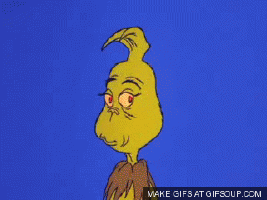 A wonderful, awful idea.I mentioned this briefly before but the story of the Grinch is a fantastic example of a redemption arc. The character begins the story as an out and out villain and behaves wickedly throughout the story -- until he encounters something that makes him stop dead in his tracks and turn around. The conversation about BC's new Grinch film I mentioned led me to set out the requirements of a redemption arc in this way: "A redemption arc doesn't require sympathy for the devil, but it does require a change of heart." For the Grinch, that's a pretty literal description, as his heart grows three sizes (from woefully undersized to welling over with compassion and empathy). In this case, the redemption arc ends with the character's full redemption and he gets a happily ever after. It's heartwarming, but not entirely typical of redemption arcs.
A wonderful, awful idea.I mentioned this briefly before but the story of the Grinch is a fantastic example of a redemption arc. The character begins the story as an out and out villain and behaves wickedly throughout the story -- until he encounters something that makes him stop dead in his tracks and turn around. The conversation about BC's new Grinch film I mentioned led me to set out the requirements of a redemption arc in this way: "A redemption arc doesn't require sympathy for the devil, but it does require a change of heart." For the Grinch, that's a pretty literal description, as his heart grows three sizes (from woefully undersized to welling over with compassion and empathy). In this case, the redemption arc ends with the character's full redemption and he gets a happily ever after. It's heartwarming, but not entirely typical of redemption arcs.
Boromir The Lord of the Rings My brother. My captain. My king.Boromir's redemption arc is a bit more nuanced. He's not an outright villain for most of the story, but he does walk a descending road from the moment he sees the Ring at the Council of Elrond. Its power tempts him and corrupts his very good desire to defend his country and bring it hope. His pride in his countrymen's defense of the free world becomes arrogant disavowal of Aragorn's right to the throne of Gondor. Boromir thinks the Council's decision to destroy the Ring is foolish, and that belief is used by the Ring to turn him against Frodo, whom he has sworn to guide and protect. But, when Boromir has gone as low as he can, he realizes what he's done is wrong and attempts to make restitution by saving Pippin and Merry from the Uruk-hai. To top it off, he acknowledges (with his dying breath, no less) Aragorn's claim to kingship and it is these dying actions that show Boromir has found redemption.
My brother. My captain. My king.Boromir's redemption arc is a bit more nuanced. He's not an outright villain for most of the story, but he does walk a descending road from the moment he sees the Ring at the Council of Elrond. Its power tempts him and corrupts his very good desire to defend his country and bring it hope. His pride in his countrymen's defense of the free world becomes arrogant disavowal of Aragorn's right to the throne of Gondor. Boromir thinks the Council's decision to destroy the Ring is foolish, and that belief is used by the Ring to turn him against Frodo, whom he has sworn to guide and protect. But, when Boromir has gone as low as he can, he realizes what he's done is wrong and attempts to make restitution by saving Pippin and Merry from the Uruk-hai. To top it off, he acknowledges (with his dying breath, no less) Aragorn's claim to kingship and it is these dying actions that show Boromir has found redemption.
Edmund and Eustace The Chronicles of Narnia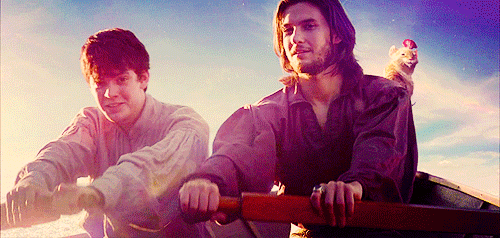 This is how everyone should look after a redemption arc.These cousins are the centers of a pair of classic redemption arcs. Edmund betrays his siblings only to find redemption at the cost of another's life and forgiveness. Eustace is a brat who learns that all his conceptions of the world are wrong and begins to mend his behavior. One of the things I love about this pair of redemption arcs is the fact that Edmund's arc comes back during Eustace's and he even consoles Eustace by mentioning some of the details. Edmund also mentions his redemption via Aslan's sacrifice in The Horse and His Boy and Eustace's change in behavior is called out in The Silver Chair. These aren't just one-and-done redemption arcs. They have lasting effects in the world of Narnia, on the characters, and on those they know and love.
This is how everyone should look after a redemption arc.These cousins are the centers of a pair of classic redemption arcs. Edmund betrays his siblings only to find redemption at the cost of another's life and forgiveness. Eustace is a brat who learns that all his conceptions of the world are wrong and begins to mend his behavior. One of the things I love about this pair of redemption arcs is the fact that Edmund's arc comes back during Eustace's and he even consoles Eustace by mentioning some of the details. Edmund also mentions his redemption via Aslan's sacrifice in The Horse and His Boy and Eustace's change in behavior is called out in The Silver Chair. These aren't just one-and-done redemption arcs. They have lasting effects in the world of Narnia, on the characters, and on those they know and love.
Greed/Ling Fullmetal Alchemist: Brotherhood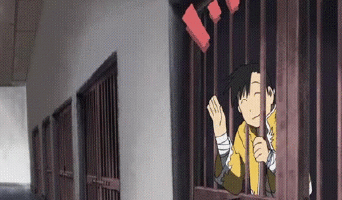 This guy is obviously redemption arc material.Ling's redemption arc is a bit of a slow burn. From the time he's first introduced, he's more of an annoyance (albeit an occasionally useful annoyance) than an antagonist. That is until he takes on the living embodiment of Greed and becomes one of the series' group of master villains as a result. But Greed was always the most ambitious and rebellious of the Homunculi, so when his desires and Ling's (yeah, the two sort of coexist in Ling's body like split personalities that can talk to each other) match up with each other but not those of the other Homunculi, Greed/Ling sets out to take down his siblings and their father. His arc comes to completion as so many redemption arcs do: a self-sacrificing death. Greed sacrifices himself to stop his father from destroying humanity (and quite possibly the universe) in his desire to become God, and Ling joins in the sacrifice, giving up his chance to become emperor. It's a beautiful moment for both of them (one of a long string of beautiful moments at the climax of the show).
This guy is obviously redemption arc material.Ling's redemption arc is a bit of a slow burn. From the time he's first introduced, he's more of an annoyance (albeit an occasionally useful annoyance) than an antagonist. That is until he takes on the living embodiment of Greed and becomes one of the series' group of master villains as a result. But Greed was always the most ambitious and rebellious of the Homunculi, so when his desires and Ling's (yeah, the two sort of coexist in Ling's body like split personalities that can talk to each other) match up with each other but not those of the other Homunculi, Greed/Ling sets out to take down his siblings and their father. His arc comes to completion as so many redemption arcs do: a self-sacrificing death. Greed sacrifices himself to stop his father from destroying humanity (and quite possibly the universe) in his desire to become God, and Ling joins in the sacrifice, giving up his chance to become emperor. It's a beautiful moment for both of them (one of a long string of beautiful moments at the climax of the show).
Jack Thompson Marvel's Agent Carter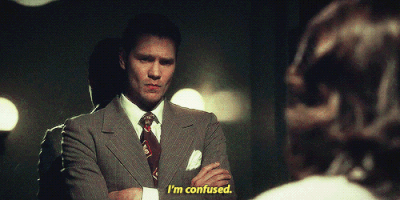 Me too, Jack. Me too.I did not like Jack Thompson the first time I watched season 1 of Agent Carter. At all. Not even when Mirriam defended him at every chance when the rest of us said he was an awful person. But I'm open to new interpretations of characters, so I gave season 1 another viewing before season 2 premiered. By the end of the eighth episode, I was convinced that at the very least Jack Thompson was not a terrible person. He did have the potential to be a very good character and ally to Carter and the rest. Then in season 2, he spent the first half of the season or so going back to that jerk of a person he'd been on my first viewing of season 1. He lied, he allied himself with obviously nefarious men, and he not only didn't protect Carter and Sousa but he went behind their backs to give their enemies leverage against them. And then he revealed himself as the A-1 actor and player, having put up a front the entire season in an attempt to keep Carter safe and bring down the people who are trying to hurt her and the country Jack loves. It is an amazing transformation of his characterization. (And if that last shot of the season isn't fixed in the yet-to-be-announced third season, I will not be happy.) I wouldn't exactly say Jack has a change of heart, but he does at least change his treatment of others, at least a little. The fact that I was made to like a character I'd previously loathed makes me want to count this one.
Me too, Jack. Me too.I did not like Jack Thompson the first time I watched season 1 of Agent Carter. At all. Not even when Mirriam defended him at every chance when the rest of us said he was an awful person. But I'm open to new interpretations of characters, so I gave season 1 another viewing before season 2 premiered. By the end of the eighth episode, I was convinced that at the very least Jack Thompson was not a terrible person. He did have the potential to be a very good character and ally to Carter and the rest. Then in season 2, he spent the first half of the season or so going back to that jerk of a person he'd been on my first viewing of season 1. He lied, he allied himself with obviously nefarious men, and he not only didn't protect Carter and Sousa but he went behind their backs to give their enemies leverage against them. And then he revealed himself as the A-1 actor and player, having put up a front the entire season in an attempt to keep Carter safe and bring down the people who are trying to hurt her and the country Jack loves. It is an amazing transformation of his characterization. (And if that last shot of the season isn't fixed in the yet-to-be-announced third season, I will not be happy.) I wouldn't exactly say Jack has a change of heart, but he does at least change his treatment of others, at least a little. The fact that I was made to like a character I'd previously loathed makes me want to count this one.
Regina Mills Once Upon a Time Evil isn't always forever.Regina's is another classic villain-to-hero redemption arc. She starts out the show as the Evil Queen of Snow White fame, intent on destroying everyone's happy endings because she lost her own. But as the seasons pass, she grows less consumed with revenge and more consumed with love and keeping her adopted son Henry safe and well. She changes her goals and becomes focused on being the best person she can, on being someone who is more than evil deeds. It's a lovely arc and one of the few the showrunners haven't destroyed along their way to seasons five and six.
Evil isn't always forever.Regina's is another classic villain-to-hero redemption arc. She starts out the show as the Evil Queen of Snow White fame, intent on destroying everyone's happy endings because she lost her own. But as the seasons pass, she grows less consumed with revenge and more consumed with love and keeping her adopted son Henry safe and well. She changes her goals and becomes focused on being the best person she can, on being someone who is more than evil deeds. It's a lovely arc and one of the few the showrunners haven't destroyed along their way to seasons five and six.
Rumplestiltskin Once Upon a Time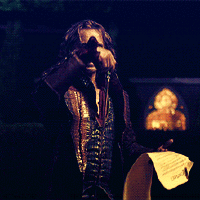 It's magic, dearie.And speaking of ruined redemption arcs, Rumplestiltskin has been one of the most compelling characters on this show from the beginning. As a complex villain whose main motivation is reunion with his long-lost son, Rumple's story has been full of darkness and glimmers of light. He's had two fantastic redemption arcs in the last five seasons: one when he sacrificed himself to stop his father from destroying Storybrooke and those Rumple loves (including his son) and the other when he becomes a hero, devoid of the darkness that's consumed him for centuries, all in order to save his true love and the rest of the town. Unfortunately, both of those redemption arcs have been summarily dismantled by the writers within episodes of their fulfillment. It's one of my biggest frustrations with the show, because they seem to either not care or not know how to write Rumple as a hero for any length of time. I'd love to list Rumple as an example of a good redemption arc (and up to the moments that they ruin it, he is) but it's just not possible right now. (I can always hope they'll redeem him by the end, but I'm less inclined to trust the writers on this front now.)
It's magic, dearie.And speaking of ruined redemption arcs, Rumplestiltskin has been one of the most compelling characters on this show from the beginning. As a complex villain whose main motivation is reunion with his long-lost son, Rumple's story has been full of darkness and glimmers of light. He's had two fantastic redemption arcs in the last five seasons: one when he sacrificed himself to stop his father from destroying Storybrooke and those Rumple loves (including his son) and the other when he becomes a hero, devoid of the darkness that's consumed him for centuries, all in order to save his true love and the rest of the town. Unfortunately, both of those redemption arcs have been summarily dismantled by the writers within episodes of their fulfillment. It's one of my biggest frustrations with the show, because they seem to either not care or not know how to write Rumple as a hero for any length of time. I'd love to list Rumple as an example of a good redemption arc (and up to the moments that they ruin it, he is) but it's just not possible right now. (I can always hope they'll redeem him by the end, but I'm less inclined to trust the writers on this front now.)
Prince ZukoAvatar: The Last Airbender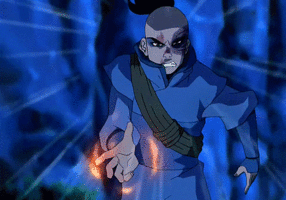
Simply put, Zuko's redemption arc is a thing of beauty. His initial moments on screen establish him as a villain, the person who will be causing massive amounts of trouble and danger for our protagonist Aang and his friends. Yet before the first season is done, Zuko has been made into a complex figure who believes in honor and, though still a danger to Aang, isn't as dangerous as other characters like Zhao and Zuko's father, Fire Lord Ozai. Season 2 sees Zuko become an even conflicted character. Further exiled from his homeland and trying to make his way in the world, Zuko eventually is faced with the choice between two things: fighting his sister and joining Aang, or striking down Aang in a moment of weakness and being reconciled to his father the Fire Lord. Zuko chooses the latter in a heartbreaking moment that sets up his entire journey as a character for the final season. That last season sees Zuko reject the things he's always wanted -- his father's praise, being reinstated as prince of the Fire Nation, belonging -- for what he knows is right -- joining Aang, the Avatar and protector of the world. Zuko is already compelling as an antagonist. He wants things most people want, and he strives to live honorably even in difficult situations. But it isn't until we see him give up those things he's most desired and live in a lower, more humble and humiliating state than he's ever known -- all for the sake of his convictions -- that he truly become a character we can love and defend.
P.S. One character most people might expect to see here is Severus Snape. In my opinion, Snape's story is NOT a redemption arc, though he comes close. He's never truly apologetic for the things he's done and though he does sacrifice himself to protect Harry in the end, it's not because he's changed over the seven years of the books. It's precisely because his motivation HASN'T changed that he does so. However, I'll listen to arguments to the contrary if you've got one.
I've been thinking about what makes a redemption arc powerful (and what makes a good one). My friend Mirriam has posted recently about good and bad character deaths and what makes a good story and she's even shared her hopes for Hive to be redeemed on Marvel's Agents of S.H.I.E.L.D. Another friend shared the news that Benedict Cumberbatch is voicing the Grinch in a new animated movie and that turned into a conversation about how the live action film basically destroyed the Grinch's redemption arc by making him the victim of the materialistic Whos.
While there's nothing wrong with multiple redemption arcs in the same story, in that case, they just didn't work as well together as they should have.
So what makes a good redemption arc? I'm going to look at a couple of my favorites to figure that out. (Warning: spoilers abound for the various stories I look at read further at your own risk.)
The Grinch How the Grinch Stole Christmas
 A wonderful, awful idea.I mentioned this briefly before but the story of the Grinch is a fantastic example of a redemption arc. The character begins the story as an out and out villain and behaves wickedly throughout the story -- until he encounters something that makes him stop dead in his tracks and turn around. The conversation about BC's new Grinch film I mentioned led me to set out the requirements of a redemption arc in this way: "A redemption arc doesn't require sympathy for the devil, but it does require a change of heart." For the Grinch, that's a pretty literal description, as his heart grows three sizes (from woefully undersized to welling over with compassion and empathy). In this case, the redemption arc ends with the character's full redemption and he gets a happily ever after. It's heartwarming, but not entirely typical of redemption arcs.
A wonderful, awful idea.I mentioned this briefly before but the story of the Grinch is a fantastic example of a redemption arc. The character begins the story as an out and out villain and behaves wickedly throughout the story -- until he encounters something that makes him stop dead in his tracks and turn around. The conversation about BC's new Grinch film I mentioned led me to set out the requirements of a redemption arc in this way: "A redemption arc doesn't require sympathy for the devil, but it does require a change of heart." For the Grinch, that's a pretty literal description, as his heart grows three sizes (from woefully undersized to welling over with compassion and empathy). In this case, the redemption arc ends with the character's full redemption and he gets a happily ever after. It's heartwarming, but not entirely typical of redemption arcs.Boromir The Lord of the Rings
 My brother. My captain. My king.Boromir's redemption arc is a bit more nuanced. He's not an outright villain for most of the story, but he does walk a descending road from the moment he sees the Ring at the Council of Elrond. Its power tempts him and corrupts his very good desire to defend his country and bring it hope. His pride in his countrymen's defense of the free world becomes arrogant disavowal of Aragorn's right to the throne of Gondor. Boromir thinks the Council's decision to destroy the Ring is foolish, and that belief is used by the Ring to turn him against Frodo, whom he has sworn to guide and protect. But, when Boromir has gone as low as he can, he realizes what he's done is wrong and attempts to make restitution by saving Pippin and Merry from the Uruk-hai. To top it off, he acknowledges (with his dying breath, no less) Aragorn's claim to kingship and it is these dying actions that show Boromir has found redemption.
My brother. My captain. My king.Boromir's redemption arc is a bit more nuanced. He's not an outright villain for most of the story, but he does walk a descending road from the moment he sees the Ring at the Council of Elrond. Its power tempts him and corrupts his very good desire to defend his country and bring it hope. His pride in his countrymen's defense of the free world becomes arrogant disavowal of Aragorn's right to the throne of Gondor. Boromir thinks the Council's decision to destroy the Ring is foolish, and that belief is used by the Ring to turn him against Frodo, whom he has sworn to guide and protect. But, when Boromir has gone as low as he can, he realizes what he's done is wrong and attempts to make restitution by saving Pippin and Merry from the Uruk-hai. To top it off, he acknowledges (with his dying breath, no less) Aragorn's claim to kingship and it is these dying actions that show Boromir has found redemption.Edmund and Eustace The Chronicles of Narnia
 This is how everyone should look after a redemption arc.These cousins are the centers of a pair of classic redemption arcs. Edmund betrays his siblings only to find redemption at the cost of another's life and forgiveness. Eustace is a brat who learns that all his conceptions of the world are wrong and begins to mend his behavior. One of the things I love about this pair of redemption arcs is the fact that Edmund's arc comes back during Eustace's and he even consoles Eustace by mentioning some of the details. Edmund also mentions his redemption via Aslan's sacrifice in The Horse and His Boy and Eustace's change in behavior is called out in The Silver Chair. These aren't just one-and-done redemption arcs. They have lasting effects in the world of Narnia, on the characters, and on those they know and love.
This is how everyone should look after a redemption arc.These cousins are the centers of a pair of classic redemption arcs. Edmund betrays his siblings only to find redemption at the cost of another's life and forgiveness. Eustace is a brat who learns that all his conceptions of the world are wrong and begins to mend his behavior. One of the things I love about this pair of redemption arcs is the fact that Edmund's arc comes back during Eustace's and he even consoles Eustace by mentioning some of the details. Edmund also mentions his redemption via Aslan's sacrifice in The Horse and His Boy and Eustace's change in behavior is called out in The Silver Chair. These aren't just one-and-done redemption arcs. They have lasting effects in the world of Narnia, on the characters, and on those they know and love.Greed/Ling Fullmetal Alchemist: Brotherhood
 This guy is obviously redemption arc material.Ling's redemption arc is a bit of a slow burn. From the time he's first introduced, he's more of an annoyance (albeit an occasionally useful annoyance) than an antagonist. That is until he takes on the living embodiment of Greed and becomes one of the series' group of master villains as a result. But Greed was always the most ambitious and rebellious of the Homunculi, so when his desires and Ling's (yeah, the two sort of coexist in Ling's body like split personalities that can talk to each other) match up with each other but not those of the other Homunculi, Greed/Ling sets out to take down his siblings and their father. His arc comes to completion as so many redemption arcs do: a self-sacrificing death. Greed sacrifices himself to stop his father from destroying humanity (and quite possibly the universe) in his desire to become God, and Ling joins in the sacrifice, giving up his chance to become emperor. It's a beautiful moment for both of them (one of a long string of beautiful moments at the climax of the show).
This guy is obviously redemption arc material.Ling's redemption arc is a bit of a slow burn. From the time he's first introduced, he's more of an annoyance (albeit an occasionally useful annoyance) than an antagonist. That is until he takes on the living embodiment of Greed and becomes one of the series' group of master villains as a result. But Greed was always the most ambitious and rebellious of the Homunculi, so when his desires and Ling's (yeah, the two sort of coexist in Ling's body like split personalities that can talk to each other) match up with each other but not those of the other Homunculi, Greed/Ling sets out to take down his siblings and their father. His arc comes to completion as so many redemption arcs do: a self-sacrificing death. Greed sacrifices himself to stop his father from destroying humanity (and quite possibly the universe) in his desire to become God, and Ling joins in the sacrifice, giving up his chance to become emperor. It's a beautiful moment for both of them (one of a long string of beautiful moments at the climax of the show).Jack Thompson Marvel's Agent Carter
 Me too, Jack. Me too.I did not like Jack Thompson the first time I watched season 1 of Agent Carter. At all. Not even when Mirriam defended him at every chance when the rest of us said he was an awful person. But I'm open to new interpretations of characters, so I gave season 1 another viewing before season 2 premiered. By the end of the eighth episode, I was convinced that at the very least Jack Thompson was not a terrible person. He did have the potential to be a very good character and ally to Carter and the rest. Then in season 2, he spent the first half of the season or so going back to that jerk of a person he'd been on my first viewing of season 1. He lied, he allied himself with obviously nefarious men, and he not only didn't protect Carter and Sousa but he went behind their backs to give their enemies leverage against them. And then he revealed himself as the A-1 actor and player, having put up a front the entire season in an attempt to keep Carter safe and bring down the people who are trying to hurt her and the country Jack loves. It is an amazing transformation of his characterization. (And if that last shot of the season isn't fixed in the yet-to-be-announced third season, I will not be happy.) I wouldn't exactly say Jack has a change of heart, but he does at least change his treatment of others, at least a little. The fact that I was made to like a character I'd previously loathed makes me want to count this one.
Me too, Jack. Me too.I did not like Jack Thompson the first time I watched season 1 of Agent Carter. At all. Not even when Mirriam defended him at every chance when the rest of us said he was an awful person. But I'm open to new interpretations of characters, so I gave season 1 another viewing before season 2 premiered. By the end of the eighth episode, I was convinced that at the very least Jack Thompson was not a terrible person. He did have the potential to be a very good character and ally to Carter and the rest. Then in season 2, he spent the first half of the season or so going back to that jerk of a person he'd been on my first viewing of season 1. He lied, he allied himself with obviously nefarious men, and he not only didn't protect Carter and Sousa but he went behind their backs to give their enemies leverage against them. And then he revealed himself as the A-1 actor and player, having put up a front the entire season in an attempt to keep Carter safe and bring down the people who are trying to hurt her and the country Jack loves. It is an amazing transformation of his characterization. (And if that last shot of the season isn't fixed in the yet-to-be-announced third season, I will not be happy.) I wouldn't exactly say Jack has a change of heart, but he does at least change his treatment of others, at least a little. The fact that I was made to like a character I'd previously loathed makes me want to count this one.Regina Mills Once Upon a Time
 Evil isn't always forever.Regina's is another classic villain-to-hero redemption arc. She starts out the show as the Evil Queen of Snow White fame, intent on destroying everyone's happy endings because she lost her own. But as the seasons pass, she grows less consumed with revenge and more consumed with love and keeping her adopted son Henry safe and well. She changes her goals and becomes focused on being the best person she can, on being someone who is more than evil deeds. It's a lovely arc and one of the few the showrunners haven't destroyed along their way to seasons five and six.
Evil isn't always forever.Regina's is another classic villain-to-hero redemption arc. She starts out the show as the Evil Queen of Snow White fame, intent on destroying everyone's happy endings because she lost her own. But as the seasons pass, she grows less consumed with revenge and more consumed with love and keeping her adopted son Henry safe and well. She changes her goals and becomes focused on being the best person she can, on being someone who is more than evil deeds. It's a lovely arc and one of the few the showrunners haven't destroyed along their way to seasons five and six.Rumplestiltskin Once Upon a Time
 It's magic, dearie.And speaking of ruined redemption arcs, Rumplestiltskin has been one of the most compelling characters on this show from the beginning. As a complex villain whose main motivation is reunion with his long-lost son, Rumple's story has been full of darkness and glimmers of light. He's had two fantastic redemption arcs in the last five seasons: one when he sacrificed himself to stop his father from destroying Storybrooke and those Rumple loves (including his son) and the other when he becomes a hero, devoid of the darkness that's consumed him for centuries, all in order to save his true love and the rest of the town. Unfortunately, both of those redemption arcs have been summarily dismantled by the writers within episodes of their fulfillment. It's one of my biggest frustrations with the show, because they seem to either not care or not know how to write Rumple as a hero for any length of time. I'd love to list Rumple as an example of a good redemption arc (and up to the moments that they ruin it, he is) but it's just not possible right now. (I can always hope they'll redeem him by the end, but I'm less inclined to trust the writers on this front now.)
It's magic, dearie.And speaking of ruined redemption arcs, Rumplestiltskin has been one of the most compelling characters on this show from the beginning. As a complex villain whose main motivation is reunion with his long-lost son, Rumple's story has been full of darkness and glimmers of light. He's had two fantastic redemption arcs in the last five seasons: one when he sacrificed himself to stop his father from destroying Storybrooke and those Rumple loves (including his son) and the other when he becomes a hero, devoid of the darkness that's consumed him for centuries, all in order to save his true love and the rest of the town. Unfortunately, both of those redemption arcs have been summarily dismantled by the writers within episodes of their fulfillment. It's one of my biggest frustrations with the show, because they seem to either not care or not know how to write Rumple as a hero for any length of time. I'd love to list Rumple as an example of a good redemption arc (and up to the moments that they ruin it, he is) but it's just not possible right now. (I can always hope they'll redeem him by the end, but I'm less inclined to trust the writers on this front now.)Prince ZukoAvatar: The Last Airbender

Simply put, Zuko's redemption arc is a thing of beauty. His initial moments on screen establish him as a villain, the person who will be causing massive amounts of trouble and danger for our protagonist Aang and his friends. Yet before the first season is done, Zuko has been made into a complex figure who believes in honor and, though still a danger to Aang, isn't as dangerous as other characters like Zhao and Zuko's father, Fire Lord Ozai. Season 2 sees Zuko become an even conflicted character. Further exiled from his homeland and trying to make his way in the world, Zuko eventually is faced with the choice between two things: fighting his sister and joining Aang, or striking down Aang in a moment of weakness and being reconciled to his father the Fire Lord. Zuko chooses the latter in a heartbreaking moment that sets up his entire journey as a character for the final season. That last season sees Zuko reject the things he's always wanted -- his father's praise, being reinstated as prince of the Fire Nation, belonging -- for what he knows is right -- joining Aang, the Avatar and protector of the world. Zuko is already compelling as an antagonist. He wants things most people want, and he strives to live honorably even in difficult situations. But it isn't until we see him give up those things he's most desired and live in a lower, more humble and humiliating state than he's ever known -- all for the sake of his convictions -- that he truly become a character we can love and defend.
P.S. One character most people might expect to see here is Severus Snape. In my opinion, Snape's story is NOT a redemption arc, though he comes close. He's never truly apologetic for the things he's done and though he does sacrifice himself to protect Harry in the end, it's not because he's changed over the seven years of the books. It's precisely because his motivation HASN'T changed that he does so. However, I'll listen to arguments to the contrary if you've got one.
Published on April 17, 2016 18:17



